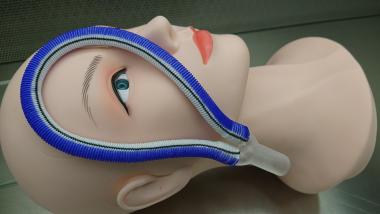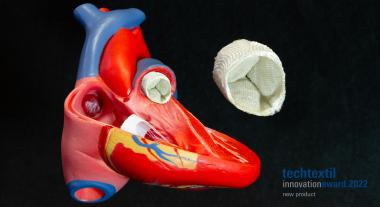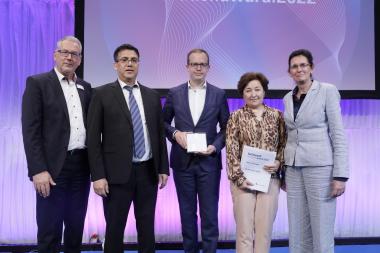DITF: Pleated textile tube for ventilation of surgical fields
The German Institutes of Textile and Fiber Research Denkendorf (DITF) will be exhibiting at the MEDICA medical technology trade fair in Düsseldorf from November 13 to 16, 2023. At the joint stand of Baden-Württemberg International, a new development will be shown, that can reduce infections during operations.
These nosocomial infections occur when surgical wounds are contaminated by microbes. They can lead to serious complications. The task of the contract development was to create a porous ring tube that reduces the risk of contamination during operations. Germ-free air is introduced into the operating field via the so-called airflow ring, thereby shielding pathogenic germs.
The tube is knitted from polyester and folded. This pleating ensures that the circular shape remains stable, but the tube is still flexible. The outside of the tube is coated so that the air is directed into the inner area of the airflow ring. The ring is attached to the skin with a biocompatible adhesive so that it fits tightly on curved areas of the body such as the face or around joints. The position of the ring can be easily changed.
The functionality of the airflow ring was successfully demonstrated in tests with nebulized colony-forming bacteria.
The tests showed that the ring also withstands significantly worse conditions than in an operating theater, e.g. in doctors' surgeries and in situations with lower hygiene standards.
DITF German Institutes of Textile and Fiber Research Denkendorf Medical & Healthcare medical textiles
DITF








